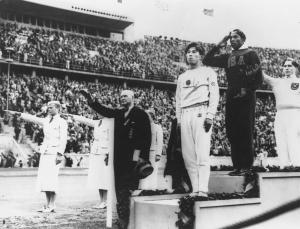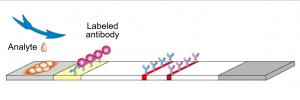The minimum wage system is a nation’s intervention in the wage-determining process between employers and employees to set a minimum wage level. Moreover, it is a system that protects low-wage workers by forcing people to pay more than a certain level of wages. Korea established the *Labor Standards Act in 1953 and provided the basis for the implementation of the minimum wage system in article 34 and 35. However, it was not implemented at that time because the nation’s economic situation made it difficult to accept a minimum wage system because of the lack of economic activity. Since the mid-1970s, the government has conducted administrative guidance to resolve excessive low wages, but low wages have not been resolved. The introduction of the minimum wage system was inevitable for a low-paying institutional solution and stable living standards above a certain level for workers, and the nation’s economy was also judged to have reached an acceptable level. Thus, the Minimum Wage Act was enacted and promulgated on December 31st 1986, and **was enforced on January 1st 1988.
-The minimum wage level for workers is guaranteed to contribute to the development of the national economy by aiming to stabilize living conditions and improving the quality of labor. (Article 1 of the Minimum Wage Act)
-As the minimum wage system increases the wages of workers below minimum wage to the level above the minimum wage, the following effects are expected:
① It mitigates wage gaps by resolving low wages and contributes to the improvement of income distribution.
② By guaranteeing workers a certain level of living, they stabilize their lives and boost their morale to enhance their productivity.
③ It avoids competition based on low wages and promotes fair competition by ensuring proper wages.
The government’s objectives for the introduction of the minimum wage system are as given above. And based on these, the minimum wage has been raised. The minimum wage for 2019 established on August 3, 2018 was set at 8350won per hour. This is a 10.9% increase from the previous year. Not all schemes go in the successful direction that they desire, so there is a diverse opinion about the minimum wage. Therefore, let’s hear voices of welcome and concern about the increase of minimum wage.
#A position to welcome the increase in minimum wage
It is the position of the low-paid worker. The minimum hourly wage is the guarantee of a decent living for them. It is the lowest wage in words, but it is actually the highest wage to them. The person in charge of economic activity generally wants to make the maximum profit at the minimum cost, and that’s applied to the employers who hire workers. Employers may want to pay the minimum cost to their employees, which in some cases prevents workers from receiving even the minimum wage by using an illegal and harmful method. For those reasons, they insist the minimum wage increase should be made to guarantee minimum living rights.
#Opposition to a minimum wage increase
It is often the position of the employer. They still have to pay minimum wage, ***Juhyusudang and rent for the building. It’s like a sandwich. Raising the minimum wage does not an entry level’ salaries or self-employed profits. However, rising prices could lead to a deformed economic structure. In addition, if the minimum wage increases and inflation occurs, the rent rises as well, and in the end, the employer is not hiring to prevent expenditures on employment, and he or she works as a part-time employee.
Let’s look at examples abroad. Germany has a minimum hourly wage of 8.84€ (11,700 won). Before the introduction of the minimum wage, employers usually employed ****mini-job. This is because hiring a person for a mini-job exempts employers from paying social insurance and income tax in part. However, since 2015 when the minimum wage system was introduced a mini-job has become a regular position. There are two main reasons for this. One is that with the introduction of a minimum wage, mini-jobs have been reduced and replaced by a regular work position. The reason was simple. Increased mini-job wage costs much more than that of regular work because employers want to maintain sales rather than reduce labor costs as well. Germany has led to a narrowing of the wage gap between East and West Germany since the introduction of minimum wage. However, it has side effects. Some employers do not pay the minimum wage, and often increase the intensity of their labor to complete specific tasks in a short time. Furthermore, prices of certain items, including taxi fares and publications, also increased in the first year of the minimum wage. However, due to low energy prices, the overall consumer price rate was increased by only 0,3%. As a result, the number of mini-jobs has decreased by 200,000 and there are now 710,000 regular positions covered by social insurance.
Raising the minimum wage is an unavoidable trend. It should be raised as economic conditions fluctuate. However, a steep rise without institutional support can cause sudden inflation. This rise leads to economic loss as the government tries to resolve only what is visible. Both employers and employees are economically disadvantaged. Therefore, raising the minimum wage is not a fundamental solution.
The problem of low-wage labor is difficult to solve by simply raising the minimum wage. Since social infrastructure such as education, housing and welfare can guarantee a minimum living, the nation should also carry out indirect support policies, such as free food, providing diapers, to raise the standard of living of low-wage workers. This is the universal position for the matter of minimum wage.
*Labor Standards Act- The purpose of this Act is to establish the standards for terms and conditions of employment in conformity with the Constitution, thereby securing and improving the fundamental living standards of workers and achieving a well-balanced development of the national economy.
**The minimum wage at the time was divided into groups, and the common minimum wage without group distinction was 600won in 1989.
***Juhyusudang-Giving paid weekly holidays to employees who have completed the required working days for one week.
****Mini-job-A job with a salary of less than €450 per month in Germany.
Chung Minkyung 7carrot@naver.com
<저작권자 © 홍익대영자신문사, 무단 전재 및 재배포 금지>





